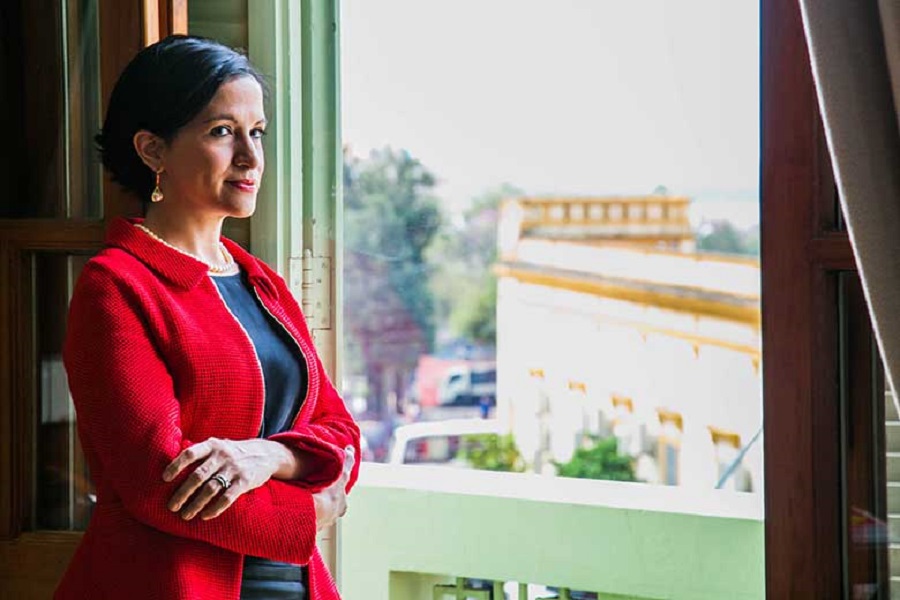RIO DE JANEIRO, BRAZIL – Lea Giménez was the first woman to hold the position of Paraguay’s Finance Minister and in the ABC TV show “Líderes,” she talked about the economic challenges the government that will take office in 2023 will be facing and her projections for the economy in 2022.
Giménez said that when she left the Ministry of Finance she was in a cooling off period, to separate herself slightly from related issues.

Giménez worked at the Inter-American Development Bank. She said “I was there for almost three years, working on institutional and economic issues related to the institutional issues of Latin American and Caribbean countries. I was in Washington.”
She analyzed institutional development: “As countries we are members of an ‘international club’, members of the Monetary Fund, the Inter-American Development Bank and the World Bank.”
“Eventually, and as part of this ecosystem of countries, we are assessed and analyzed in terms of our capacity as a State, as a Government, to respond to citizens’ demands,” she continued.
This is where the rule of law is measured, the institutional capacity to respond to the needs of its citizens. And she gave an example: access to power, “how we elect and how we exercise that power. It allows us to understand how we move towards inclusive development.”
According to the expert, in some aspects Paraguay is doing well. “In fiscal, macroeconomic and monetary policy, we did a good job, we advanced in a consistent way with long-term State policies to lay those foundations.”
The economist stated that the pandemic “shook the foundations, today we have to maintain our fiscal policy, we have a significant deficit, a debt that grew significantly.”
INFLATION
She said that the country is faced with the challenge of inflation. “Monetary policy must direct its strength to influence inflation, which is so hard, it is the most regressive tax,” she said.
She advised to immediately reverse the “shakeout” and work to ensure healthy fundamentals.
FITCH’S RATING
Giménez assured that Fitch maintains Paraguay’s rating. “That is an achievement considering we are one of the few countries that managed to maintain that rating. And, at the same time, we have been stagnant in that indicator for quite some time,” she stressed.
INDICATORS
The former Minister said that Paraguay has significant challenges in the good governance indicator.
And regarding the Monetary Fund’s evaluation, she said that they are watching the monetary policy. “Our independent Central Bank is doing well; deficit within the context of the pandemic was going to happen, we were able to react well in implementing policies.”
HUMAN CAPITAL
Considering human capital, she argued that the Monetary Fund discussed investing in human capital. “It is not only education, but health, social protection and also infrastructure,” she explained.
“We are evaluated by Gafilat, it used to say, ‘Does the country have the necessary regulations to do its job?’ Fine, but how effective are regulations,” she asked.
According to Giménez, this is where weaknesses are found because it depends on institutional strengths and the separation of powers to respond to citizens’ needs.
FISCAL ACCOUNTS
With respect to Fitch, the fiscal accounts of all countries were able to respond and Paraguay did relatively well. “Some things were done well, other challenges are still there. There is still much room for improvement in the social aspect and in the effectiveness of public policies,” she said.
LEVEL OF INDEBTEDNESS
The level of indebtedness is analyzed country by country. “The country’s repayment capacity, the seriousness of its fiscal accounts, are shown over the years, demonstrating a commitment to fiscal policies,” she stated
“They see that this country did a good job from the fiscal and monetary standpoint. Things are relatively good from the fiscal and monetary policy standpoint,” she said.
THE PRESIDENT’S MANAGEMENT
Regarding the Mario Abdo Benítez government’s economic policy management, Giménez said that “it is very difficult to separate the fiscal from the social issue.”
“I would rate it a 2. There were things that were done well; however, our health system is weak, we are unprepared, we came out of a dengue epidemic and now we are entering a new one. Certain measures were taken that seemed to be good, but unfortunately they were distorted,” she conceded.
She recalled that there are basic aspects for a society such as health, education, security and justice.

